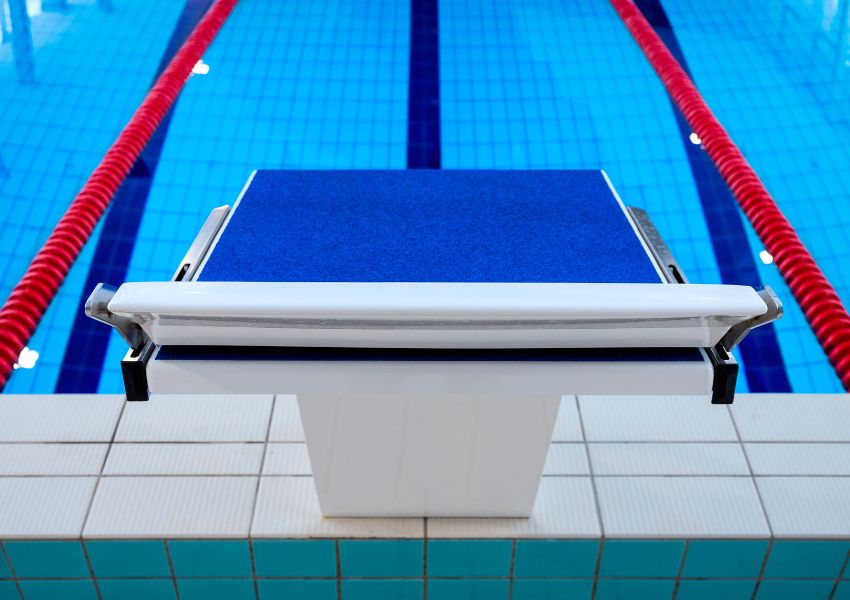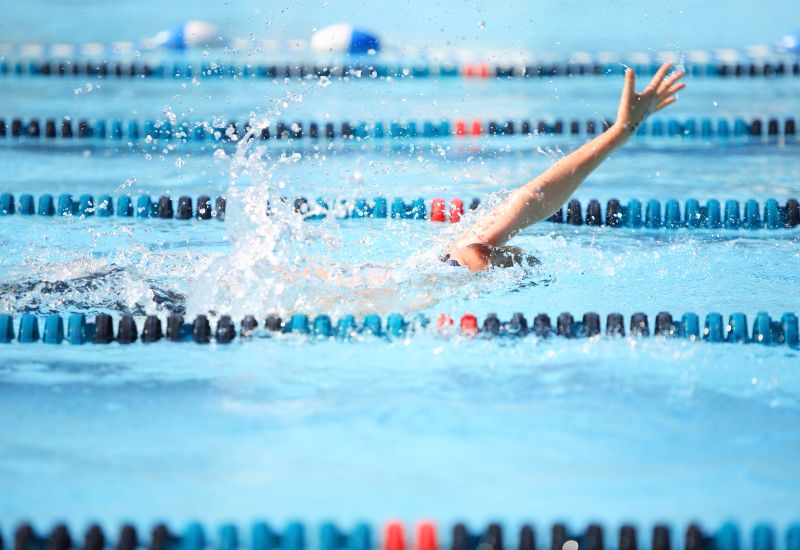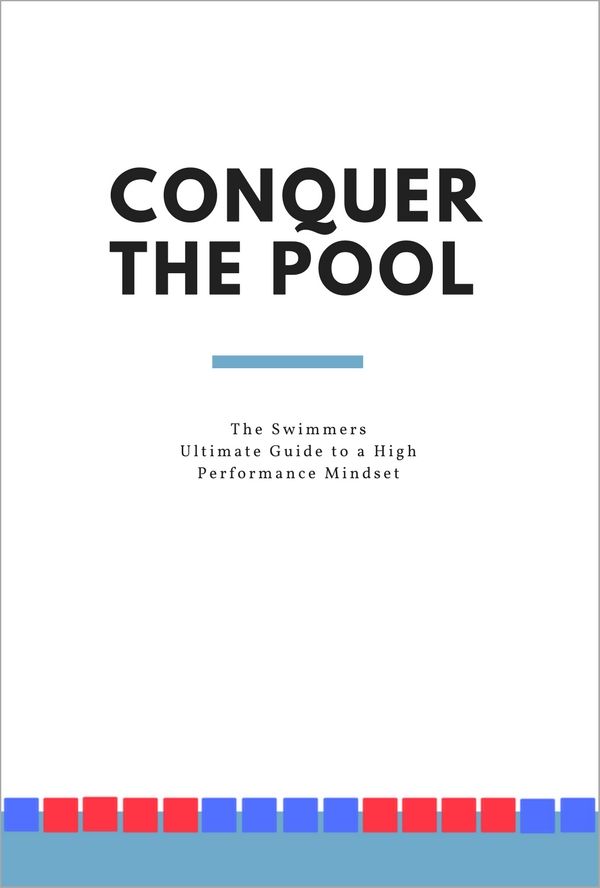Ryan Murphy is yet another in a long line of American backstroke dynamos.
Murphy, who starred at Cal, took over from legends including Naber, Rouse, Berkoff, Grevers, and Peirsol.
An NCAA champion, world record holder, and four-time Olympic champion, Murphy has collected a ton of hardware over the years in international competition.
But despite Murphy’s long list of accomplishments, he also experiences the nerves and anxiety of competition.
In this article, we look at the tips Murphy shared with author and entrepreneur Maria Angelova in a recent interview about how to manage performance anxiety.
(The full article and interview can be read here. It’s an excellent read that delves into Murphy’s work ethic and out-of-the-pool goals, too.)
With each tip, I offer up some commentary and further suggestions for implementation so that you can use Murphy’s advice for faster swimming on race day.
Let’s dive in.
Create a race day routine.
“Write down everything you need to do. You will forget things when feeling extreme nerves. At the Olympics, for each day in attendance, I have my schedule blocked in 15-minute increments.”
Having a race day routine is an excellent way to give yourself a sense of control in times of stress and anxiety.
Obviously you don’t need to go into the same level of depth as Murphy does when he is at the Olympics but having a rough schedule for the day helps give you a sense of building momentum.
Sit down and write out what you are going to do on race day. What time you are going to arrive to the pool, the warm-up process, how soon before your race you will go down behind the blocks, and so on.
As you complete each part of your schedule—arriving to the pool an hour before warm-ups, eating your pre-determined breakfast, doing your usual warm-up, finding 10 minutes to quietly stretch and visualize, go to your coach for the final pre-swim talk—you are accumulating wins, building confidence, and remaining in control.
A simple schedule/routine not only helps you stay on top of planning the simple stuff—pack a racing suit, for example—but also provides an anchor to focus on while the stress of competition swirls around you.
Build up your pressure reps
“In the months leading up to a race, practice feeling pressure. In order to be good at anything, people need reps. I want to be great at dealing with pressure, so I find time to rehearse those feelings.”
An exceedingly common issue I see with swimmers who are unable to connect the training they do at practice with the performance they expect in competition is that they don’t experience enough pressure.
They avoid the harder intervals. They pull their punches on test sets. They avoid situations in training where the pressure is on, preferring to play it safe.
As a result, when they experience pressure for real in competition, they are utterly unprepared for the surge in anxiety and stress.
Find opportunities to face pressure in training. Get out swims. Faster intervals. Broken swims. Suit-Up Saturdays. Visualize your races daily, including feeling the pressure and butterflies as you step up on the block.
And so on.
I get a lot of emails asking how swimmers can learn to thrive under pressure.
Like there is some magic hack or super sneaky brain code.
The “fix” for executing on race day when the pressure is on is relatively simple: Get comfortable with it by experiencing it more often and normalizing that sensation of rushing nerves.
You don’t get better at dealing with pressure by avoiding it.
Learn to live with it. Embrace it. Use it.
Keep things loose and positive
“In the hours leading up to the high-pressure moment, find healthy distractions. This ritual will be different for everyone. I like to watch funny movies or shows to keep my mind distracted.”
Focus is a powerful thing.
When locked in on the right stuff, we are energized, at our best, and in the moment.
When it drifts off—say, towards how fast other swimmers are swimming or dwelling on past performances—it can be our undoing on race day.
A great way to diffuse negative thoughts and focus is by simply keeping things loose and positive. (Easier said than done, I know!)
For Murphy, it is watching a funny movie or show to help keep his mind occupied.
For fellow Olympic champion Amanda Beard, it was the simple act of smiling. At the 2000 Olympic Trials, Beard was under a ton of pressure after failing to make the team in the 100m breaststroke.
As she walked out for the final of the 200m breaststroke, her final opportunity to make the team, she forced a smile on her face.
The physical act eventually helped her loosen up and get into a positive state of mind.
“The outward led the inward,” she recalled in her auto-biography In the Water They Can’t See You Cry. “Until I thought, ‘this is fun.’”
At the end of the day, we “get” to do this sport that we love. Racing is a moment to savor and enjoy. Not something to fear or to build up into something so unenjoyable and stress-inducing that we rush through, wanting to be rid of it.
Slow things down, distract yourself if necessary to avoid getting too worked up, and remember to smile and have fun.
Use music to help sharpen focus and arousal
“In the minutes before a race, I listen to music. I believe music is the easiest way to influence emotions #deephouse.”
Music is an awesome way to get hyped up or to chill out in competition. There are times when you need every last bit of motivational electricity to swim fast—it’s the final race on the final day of the meet and you are bagged. Or it’s a big, big race and you need some loud and aggressive music to keep you focused on your routine and preparation.
Conversely, for swimmers who get too jacked up, who are too fired up can play some more relaxing music to slow arousal to a more peak-performance position.
The Bottom Line
The way each swimmer prepares mentally for competitive scenarios is going to be unique to their specific needs.
Some swimmers need to be calm, cool, and collected, while others need high-intensity arousal strategies like chest slapping and death metal at 125 decibels to get “in the zone.”
One of the fun parts of the sport is testing and learning different strategies and incorporating the ones that work best for you.
Keep working hard, sharpen your race day plan, and slay those PBs.
 Mental Training for Swimmers (FINALLY) Made Simple
Mental Training for Swimmers (FINALLY) Made Simple
Whether you are tired of choking on race day, want to finally conquer your mindset so that you can give your PB’s the beating they deserve, or want to develop a killer game plan for your mindset, Conquer the Pool is your ticket to faster swimming.
“This is the best book I’ve ever seen concerning mental training.” — Ray Benecki, Head Coach, the FISH Swim Team
Used and trusted by some of the top clubs and swimmers on the planet and written with the feedback of 200+ head coaches, Olympians, former world record holders, and NCAA champions.



 Mental Training for Swimmers (FINALLY) Made Simple
Mental Training for Swimmers (FINALLY) Made Simple











